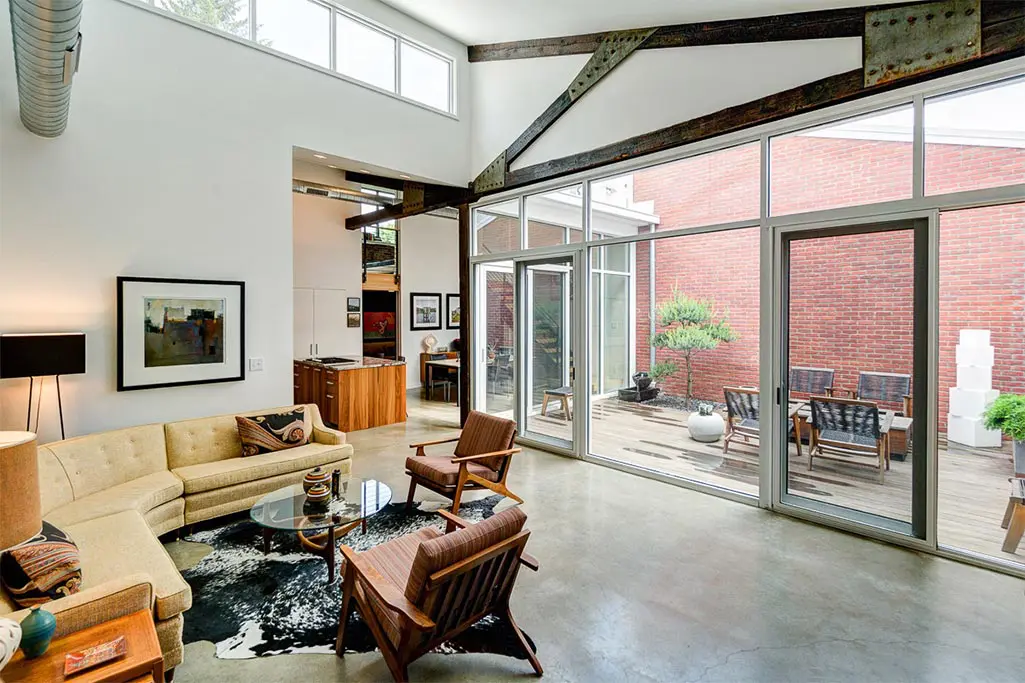At Vutech | Ruff, Cutler Real Estate, we know a thing or two about selling a home. We also know that staging your home can make a world of difference in how it’s perceived by potential buyers. A well-staged home not only highlights its best features but also helps buyers envision themselves living there.
Whether you’re preparing for a big sale or just looking to make a strong impression, these tips will guide you in showcasing your home’s full potential. From lighting and decor to personal touches and standout features, let’s dive into the essentials of effective home staging.
Essentials of Effective Home Staging
Prioritize Lighting: The importance of good lighting can’t be understated. Natural light is your best friend, but we also recommend turning on all other lights in the home during a showing. Proper lighting can enhance the ambiance across your entire home, making it feel warm and welcoming. So, take this opportunity to replace any old fixtures or bulbs that have seen better days. Outside of overhead lights and larger fixtures, don’t forget to consider cabinet underlighting, front porch and backyard lighting, and motion sensor lights if you have them.
Stage an Office: With the rise of remote work, having a dedicated office space has become more important than ever. While a full room dedicated to an office is ideal, even carving out a functional workspace in a corner or nook can be effective. Buyers will appreciate the flexibility this adds to your home.
Don’t Skip the Deep Clean: For those who haven’t cleaned their ovens since moving in – this one is for you. Now’s the time to get serious about cleaning. Appliances, bathrooms, floors, carpets, and windows should be spotless. A deep clean can make worn items look new again and give buyers the impression of a well-maintained home.
Borrow, Don’t Buy: The right-sized furniture and decor can make a world of difference. Oversized pieces can make a room feel cramped, while too-small items can leave it feeling empty. If your current setup isn’t quite right, don’t rush out to buy new pieces. Instead, consider borrowing from friends or family or visiting secondhand stores for a quick refresh.
Declutter, Declutter, Declutter: While the right furniture and decor can enlarge a space and make it feel warm and inviting, less is still more when it comes to home staging. Too many items can be overwhelming, so aim for a clean, open look that allows potential buyers to imagine themselves in the space. The key rooms you should be paying attention to here should be your kitchen, living room, and closets.
Put Personal Items Out of Sight and Out of Mind: It’s time to tuck away those personal items. Buyers want to envision their own lives in your home, not yours. This includes family photos, personal collections, and any other items that are uniquely yours.
Keep it Neutral: More than likely, potential buyers aren’t going to share your exact taste in wallpaper and paint colors. It’s best to keep things neutral, so consider painting the walls a fresh white or light grey prior to any showings.
Don’t Skimp on Mirrors: Mirrors are a simple way to make any room feel larger and brighter. They reflect light and can create the illusion of more space, which is always a plus.
Remove Valuables: We all like to think the best of people, but it’s wise to remove or securely store any valuables before showing your home. This includes items like Waterford Crystal and family heirlooms—better safe than sorry!
Hide Wires: Unsightly wires can be a distraction. Hide them with strategically placed plants or other decor items to keep the focus on your home’s best features.
Remove signs of pets: While your pet’s toys and belongings might seem charming to you, they can be a distraction for potential buyers. Some may have allergies or simply prefer a pet-free environment. Before showings, clear out any pet-related items such as crates, food bowls, and litter boxes. Also, ensure your furry friends have a safe and secure place to stay during showings.
Highlight the ‘Wow’ Factor in Every Room: Every room should have a selling point. Whether it’s a cozy fireplace, an elegant chandelier, or a spacious kitchen island, make sure to showcase the unique elements that make each room special.
Successfully staging a home requires more than just a few cosmetic changes—it involves understanding what makes a space truly inviting and appealing to buyers.
At Vutech | Ruff, Cutler Real Estate we bring extensive knowledge of the Columbus area and a deep understanding of what works – and what doesn’t – in home staging. Our experience has taught us how to highlight your home’s strengths and address potential pitfalls, ensuring that your property stands out in the market.
With our expertise, we can ensure your home makes a lasting impression and you achieve the best results in your home sale.
Ready to sell? Contact our team today!
